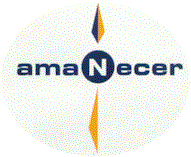![]()

1. Promoter: FVECTA (Federación Valenciana de Empresas Cooperativas de Trabajo Asociado)
2. Person responsible: Rafael Gaudiza Simó
3. Address:
Arzobispo Mayoral 11
E- 46002 Valencia
Tel: 34 96 3521386
Fax: 34 96 3511268
E-mail: fvecta@fvecta.astro.es
Website: http://www.astro/fvecta
4. Description
of the body
Status: private, non-profit
organisation
Territory: Autonomous Community of Valencia
Activities: This federation defends the interests
of the cooperatives of the region and proposes management and legal counselling services
to the cooperatives that are members of the federation. It is the leader of a network of
support for local development initiatives
5. Description
of the mechanisms for implementing the programme
5.1.Territory
The Local Social Capital programme will be implemented
over the whole of the territory of the Community of Valencia. The economic dynamism of the
region is related to the two major urban centres, the rest of the area is made up of rural
areas in decline. The unemployment rate is 18% of the working population (equal to the
national average) and the percentage of families living below the poverty threshold is
high (20.8%, slightly above the national average).
5.2.Population of the area: 656,611
inhabitants
5.3.Target group
50% of micro-project promoters shall be from the
population exposed to social exclusion and they shall all be unemployed.
5.4. Selection of the micro-projects
Even before launching a call for proposals, the
intermediary structure, with the help of its local partners, will draw up an inventory of
each area identifying the activities that could be developed, existing obstacles an the
overall context. That inventory will be used for mapping out sustainable development
strategies into which the micro-project proposals shall be integrated. The selected
micro-projects will be innovatory (job pools) and materialize in the creation of social
economy enterprises or the creation of social economy organisation. The activity developed
shall contribute to a better social cohesion of the area and to job creation. A proposal
evaluation committee, composed of two technicians from the intermediary structure and a
representative from the local development network of the area (several areas for the
implementation of the programme), will be responsible for selection.
5.5.Micro-project backup
In each area, the evaluation committee will ensure the
monitoring of the projects that they have selected themselves. In addition, the
intermediary structure organises training at regular intervals and the micro-project
promoters will have free access to such training as well as to the various tools that the
intermediary structure proposes to its members.
5.6.Partnership
The micro-project monitoring and evaluation committee is composed of representatives of the local authorities and local development associations. It will be responsible for the smooth operation of the programme. In addition, the local actors will be approached, according to their expertise, to provide technical support to the micro-projects. In actual fact, the intermediary structure has been working for more than ten years in close cooperation with the employment agency and the local authorities responsible for social affairs.
5.7.Anticipated results
Creation and development of 66 new social economy
enterprises (or new activities in social economy enterprises). Those actions should create
160 jobs and improve the quality of life (development of local services).